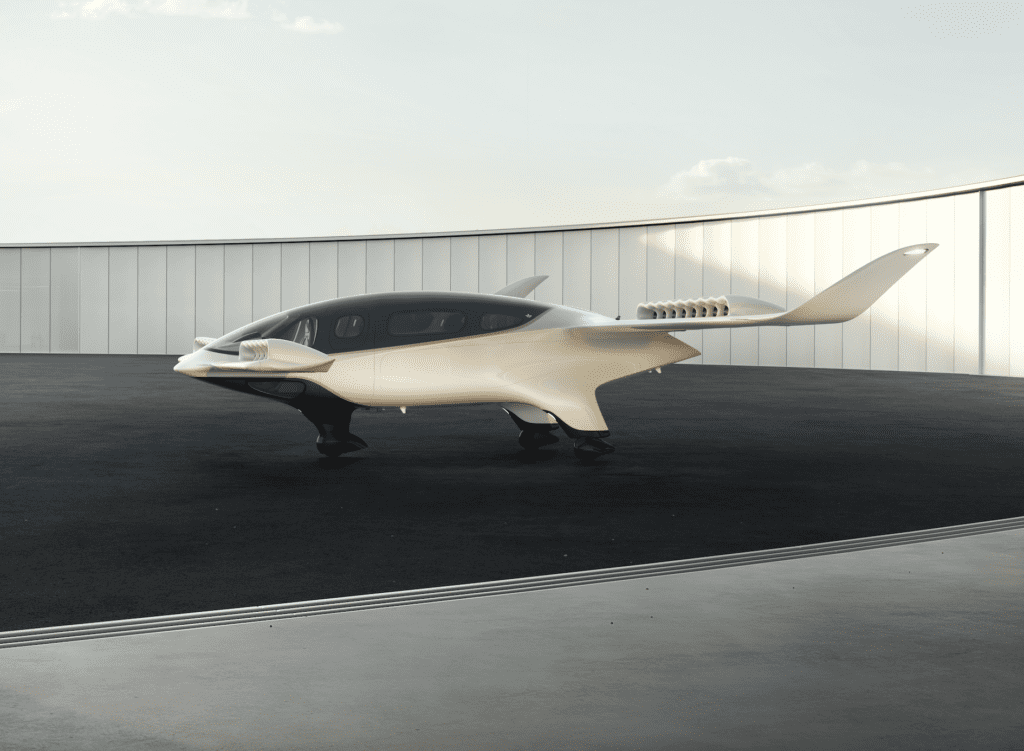
Astronics Corporation was selected to develop an electrical power distribution system for Lilium’s eVTOL aircraft. (Photo: Lilium)
Lilium has chosen aerospace supplier Astronics Corporation for a collaboration in which Astronics will develop and manufacture an electrical power distribution system for the Lilium Jet. The aircraft is an electric vertical take-off and landing (eVTOL) vehicle that has been in development since 2015. Lilium expects their aircraft to enter into service following certification in 2025.
Astronics has previously supplied power and connectivity solutions for Airbus and other commercial aircraft OEMs. The Astronics team will use their expertise in providing technologies for the aerospace and defense industries in overseeing design and development of the Lilium Jet’s secondary power distribution units (SPDUs) as well as the charging power distribution units (CPDUs). The agreement involves more than 12 months of collaboration between Astronics and Lilium.
According to Astronics, their CorePower electrical power distribution systems can offer up to 20 times higher system reliability with electronic circuit breakers. The company also estimates a 40% decrease in total life cycle cost by reducing maintenance and installation costs.

An illustration of electronic circuit breaker units developed by Astronics (Photo, courtesy of Astronics)
Each Lilium Jet will use one CPDU and two SPDUs. SPDUs maintain a reliable supply of power from batteries to the systems integrated into the eVTOL aircraft such as flight controls, sensors, avionics, and navigation systems. The CPDU manages battery charging for the aircraft, and it increases safety by detecting short circuit risks and reporting them, according to Lilium.
The Senior Vice President of Procurement at Lilium, Martin Schuebel, commented that for the Lilium Jet’s electrical power distribution system, Astronics is an ideal partner. “Astronics’ expertise is unique, and their collaborative approach makes them a perfect match for us. The partnership will also help pave the way for the coming industrial ramp-up,” Schuebel said.
Lilium recently announced that it completed its second Design Organization Approval (DOA) audit with the European Union Aviation Safety Agency (EASA). This rigorous process involved demonstrating Lilium’s core principles to EASA, such as data management and configuration control, Alastair McIntosh, the company’s Chief Technical Officer, told Avionics International. The company is simultaneously pursuing certification of the Lilium Jet with the Federal Aviation Administration, and also expects to achieve FAA certification in 2025.
Lilium has also been working in collaboration with Honeywell as development of its eVTOL progresses. Honeywell and DENSO Corporation—who have partnered together since 2019—are developing an electric motor for the Lilium Jet. The e-motor will weigh less than 4 kilograms and provide 100 kilowatts of electric power.
The eVTOL developer kicked off its flight testing program in Spain earlier this year. Lilium’s flight demonstrators, the Phoenix 2 and Phoenix 3, are both performing test flights at the ATLAS Flight Test Center in Spain. The full flight test campaign is ongoing, and the company aims to extend the eVTOL’s flight envelope for operation at high speeds.
Lilium will be exhibiting at the Farnborough International Airshow in July, along with other eVTOL developers such as Hyundai Motor Group’s Supernal, Vertical Aerospace—displaying a full-scale model of the VX4, and Wisk—with the Cora eVTOL on display.